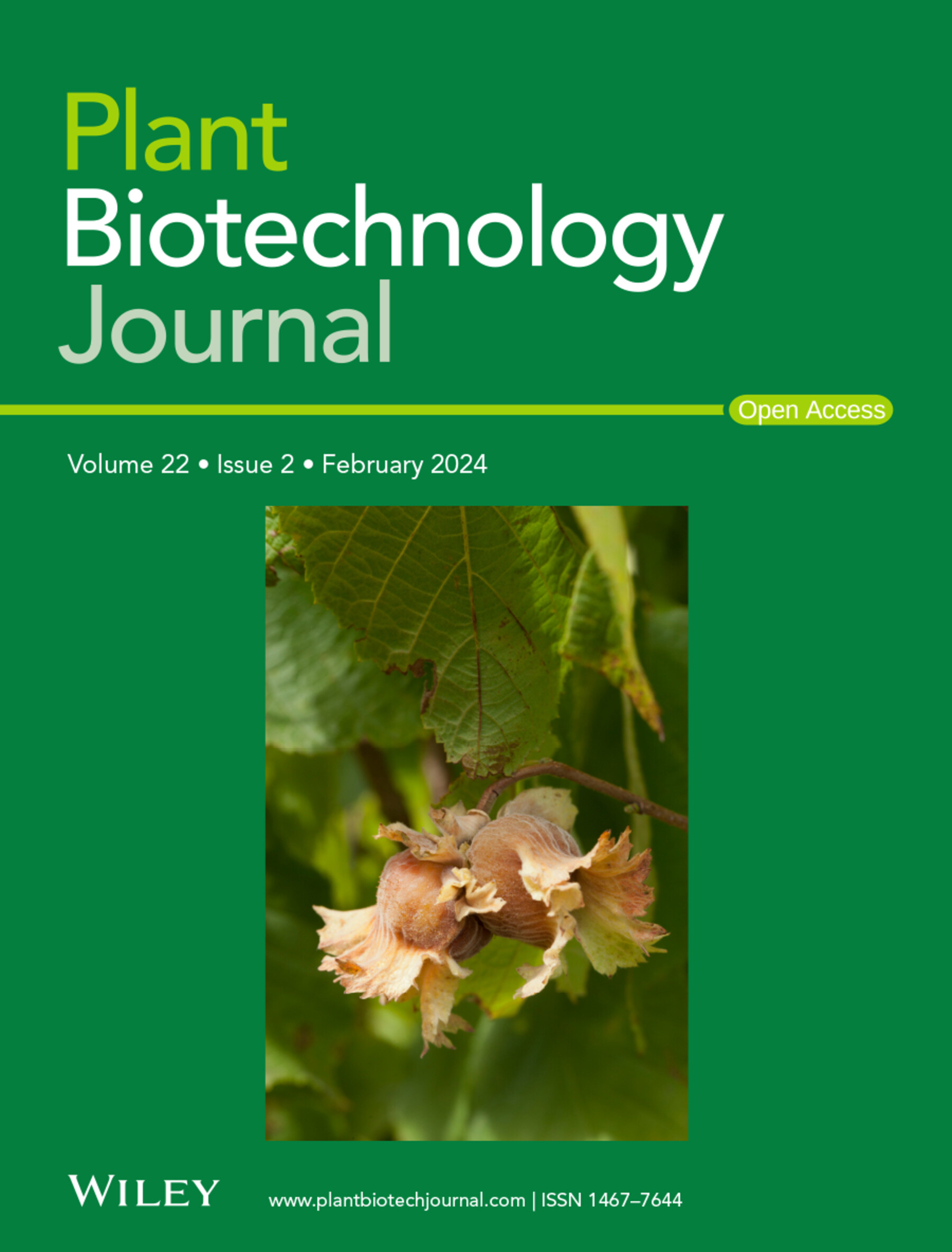Enhancing melatonin biosynthesis in crops through synthetic genetic circuits: A strategy for nutritional fortification in soybean and stress resistance in cotton.
IF 10.5
1区 生物学
Q1 BIOTECHNOLOGY & APPLIED MICROBIOLOGY
引用次数: 0
Abstract
Melatonin has gained considerable prominence in the treatment of insomnia that significantly impacts one-third of the global population. The production of melatonin remains challenging due to limitations in current methods. Thus, there is an urgent need for developing more efficient and innovative production techniques. Here, we demonstrated the potential of crop seeds as a platform for melatonin synthesis by engineering multiple BUFFER genetic circuits using synthesized transcriptional regulators, which enhance expression precision, orthogonality and thresholds. Biofortified soybeans exhibited a 31-fold increase in melatonin content compared to standard Williams 82, without detrimental impact on yield. Protein content was elevated, oil content reduced and the soybeans were suitable for post-harvest processing. Furthermore, plants enriched in endogenous melatonin exhibited stronger resilience to adversity, evidenced by improved salinity tolerance in soybean seeds and increased resistance to Verticillium dahliae in cotton. Our research paves the way for the synthesis of target compounds in staple crops using synthetic genetic circuits, facilitating the development of novel biofortified crops to increase nutritional availability and environmental adaptability in the upcoming new era of agriculture.通过合成遗传回路增强作物褪黑激素的生物合成:大豆营养强化和棉花抗逆性策略。
褪黑素在治疗影响全球三分之一人口的失眠方面取得了相当大的成就。由于现有方法的局限性,褪黑激素的生产仍然具有挑战性。因此,迫切需要发展更有效和创新的生产技术。在这里,我们展示了作物种子作为褪黑激素合成平台的潜力,通过使用合成的转录调控因子来设计多个BUFFER遗传电路,从而提高表达精度、正交性和阈值。与标准Williams 82相比,生物强化大豆的褪黑激素含量增加了31倍,但对产量没有不利影响。蛋白质含量升高,油脂含量降低,适合采后加工。此外,富含内源褪黑素的植物表现出更强的逆境抵御能力,大豆种子的耐盐性提高,棉花对大丽花黄萎病的抗性增强。我们的研究为利用合成基因电路在主要作物中合成目标化合物铺平了道路,促进了新型生物强化作物的发展,以提高即将到来的农业新时代的营养有效性和环境适应性。
本文章由计算机程序翻译,如有差异,请以英文原文为准。
求助全文
约1分钟内获得全文
求助全文
来源期刊

Plant Biotechnology Journal
生物-生物工程与应用微生物
CiteScore
20.50
自引率
2.90%
发文量
201
审稿时长
1 months
期刊介绍:
Plant Biotechnology Journal aspires to publish original research and insightful reviews of high impact, authored by prominent researchers in applied plant science. The journal places a special emphasis on molecular plant sciences and their practical applications through plant biotechnology. Our goal is to establish a platform for showcasing significant advances in the field, encompassing curiosity-driven studies with potential applications, strategic research in plant biotechnology, scientific analysis of crucial issues for the beneficial utilization of plant sciences, and assessments of the performance of plant biotechnology products in practical applications.
 求助内容:
求助内容: 应助结果提醒方式:
应助结果提醒方式:


